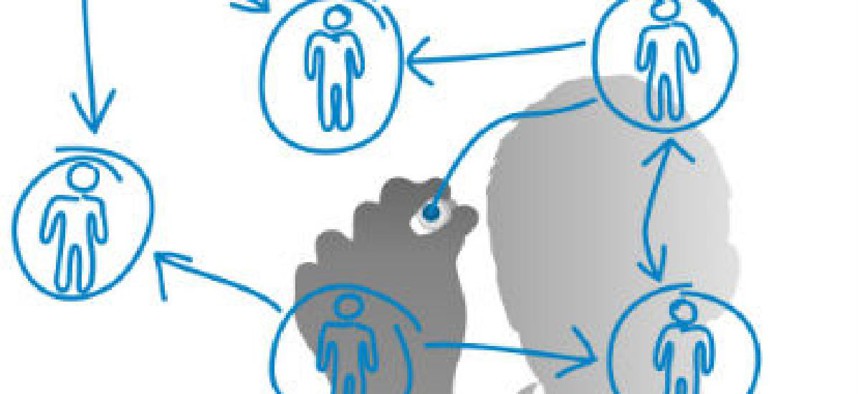How the hiring freeze targets millennials

The government desperately needs younger talent to replace an aging workforce, and experts say that a freeze on hiring doesn't help.

The federal civilian hiring freeze instituted by President Donald Trump is almost four weeks old. While there are numerous exceptions and carve-outs -- for national security and public health posts, and for certain trouble spots like the more than 35,000 vacant medical positions at the Department of Veterans Affairs -- the vast majority of government is affected.
The freeze is timed to last until the last week of April, at which point the new director of the Office of Management and Budget is supposed to have plan in place to reduce the workforce through attrition.
But a 90-day freeze with myriad exceptions is still going to damage the reputation of the federal government as an employer, according to workforce experts. One of the biggest hits will be felt among the cohort that government is so eager to target – millennial workers.
"The freeze is going to cause agencies to miss the spring 2017 graduates," said Jeffrey Neal, formerly chief human capital officer for the Department of Homeland Security. Neal, now a senior vice president with ICF and a regular blogger on government human resources issues at ChiefHRO.com, said, "the government is already having trouble finding young people, and the freeze is going to make it harder."
Data from the Office of Personnel Management bears this out. In 2010, a little over 10 percent of federal workers were under 30 years of age. That proportion has dropped steadily in recent years, ebbing at 6.4 percent in 2015, the most recent year for which data is available.
While the retirement wave predicted by some government HR pros never seems to crash, the federal workforce is aging, and young people aren't showing up for job openings.
The problem is especially stark in IT occupations, said Max Stier, president of the Partnership for Public Service. In IT, "there are three times as many people over the age of 60 as under 30," he said in a Feb. 13 appearance on C-SPAN. "The question is, is that what you want to freeze in place?"
Don Kettl, a professor and former dean in the School of Public Policy at the University of Maryland, said that, "millennials coming up, as best as I can tell, are discouraged by what they are seeing." He noted that for students studying government and policy, it isn't just the freeze, but the political climate in which the federal workforce is treated as "a stalking horse for ideological battles."
"We really do run the risk of losing a generation of workers," Kettl said.
Separate from the freeze, Kettl and Neal said, is the problem of reforming federal pay and job categorization.
"Almost nobody I know thinks the current system we have is a good idea," Kettl said. However, by casting the bureaucracy as a stand-in for big government, conservatives make it difficult to engage on workforce reform. "Public employee unions circle the wagons and fire back," he said. "It's a really nasty problem."
Neal said the issue of federal workforce reform suffers from oversimplification on all sides.
"People like to look at federal pay and treat it like it's simple," with partisans dividing over whether federal employees are overpaid or underpaid, he said. "The truth is that none of those are right. There are federal employees that are overpaid and those that are grossly underpaid. So trying to use this one-size-fits-none system – it doesn't work well and hasn't worked well for a long time."
Even before the freeze, workforce problems were preventing the government from addressing its most pressing problems, Kettl said. He led a study in 2016 that examined the programs on the high-risk list from the Government Accountability Office.
"Human capital issues are central at every one" of these problem programs, Kettl said. "We continue to put federal spending at risk. That's the core of our problem: We are drifting into a fierce ideological battle that is likely to frustrate our ability to do what needs to be done."
Stier sees the problem in similar terms. "There are all kinds of reasons why we should be doing government more effectively," he said. "A hiring freeze is not going to get us there."
He added: "For the workforce, the hiring freeze is kicking the can down the road and will make a bad problem worse."



